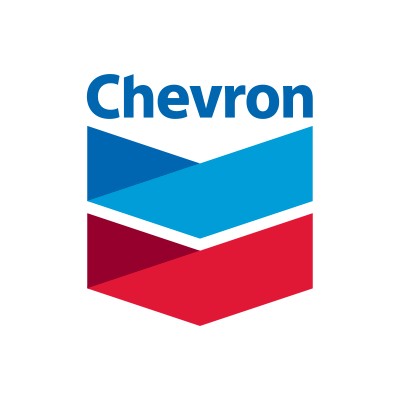QS Rank:

471

Tulane University

New York
,United States

Program Name
Master of Science in Chemical and Biomolecular Engineering
Overview
The Master of Science in Chemical and Biomolecular Engineering at Tulane University stands out as a premier program designed for those eager to excel in the ever-evolving field of engineering. This comprehensive program delves deep into the principles of chemical and biomolecular engineering, preparing students with the technical skills and analytical tools necessary to address complex challenges in various industries. With a duration of 24 months, students engage in a rigorous curriculum that combines theoretical knowledge with practical applications, ensuring they are well-equipped for the workforce upon graduation.
The curriculum is thoughtfully structured, encompassing core courses such as Thermodynamics, Transport Phenomena, and Reaction Engineering, alongside specialized electives that cater to emerging areas of interest, including Biochemical Engineering and Nanoscale Engineering. Each course is designed to foster critical thinking and innovation, encouraging students to develop their own research projects under the guidance of esteemed faculty. The program aims to equip students not only with technical capabilities but also with the soft skills required for effective collaboration and communication in diverse work environments.
Faculty at Tulane University are distinguished professionals in their respective fields, bringing a wealth of knowledge and real-world experience into the classroom. The faculty emphasizes a hands-on teaching methodology, which includes interactive lectures, group projects, and lab work. This immersive approach encourages students to engage actively in their learning process, fostering a deeper understanding of the material. Furthermore, students benefit from the faculty's strong industry connections, which can lead to invaluable internship opportunities and networking experiences, enhancing their career prospects.
Research opportunities at Tulane are abundant and diverse, spanning areas like drug delivery systems, sustainable energy solutions, and process optimization. Students have access to state-of-the-art laboratories equipped with cutting-edge technology, allowing them to conduct innovative research that can lead to groundbreaking advancements in the field. Collaboration with industry partners on research projects is encouraged, enabling students to gain insights into real-world applications of their studies. Additionally, the university often hosts workshops and symposia where students can present their findings and receive feedback from experts, further enriching their academic journeys.
The program also boasts an impressive track record of career outcomes for graduates. Alumni have successfully secured positions in high-demand roles such as Biomedical Engineer, Research Scientist, and Process Engineer, with many ascending to leadership positions like Chief Technology Officer and Vice President of Engineering. The average starting salary for graduates is approximately $85,000, reflecting the strong demand for skilled professionals in this domain. The program’s strong emphasis on practical experience ensures that students are competitive in the job market, with numerous alumni testifying to the effectiveness of their education in shaping their successful careers.
In summary, the Master of Science in Chemical and Biomolecular Engineering at Tulane University provides a comprehensive educational experience that blends rigorous coursework with extensive research and industry exposure. This program not only develops technical expertise but also cultivates the leadership skills needed to thrive in dynamic environments, making it an excellent choice for aspiring engineers.
Why Study Chemical and Biomolecular Engineering at Tulane University
- A popular choice for international students, fostering a diverse and inclusive community that enhances collaborative learning.
- Learn from a distinguished faculty of experts, many of whom are leading researchers in their fields, providing mentorship and guidance as research assistants.
- Access to high-end laboratories and advanced technological resources that facilitate innovative research and experimentation.
- Strong placement programs and career services that support students in securing internships and job placements post-graduation, enhancing employability.
- A comprehensive approach to education that combines theory with practical applications, preparing graduates for immediate impact in the workforce.
- Opportunities for interdisciplinary collaboration, allowing students to work on projects that bridge chemical engineering with fields like biology, medicine, and environmental science.
- A strong network of alumni who are well-placed in industry, providing mentorship and job connections for current students.

Duration
24 Months

Median Salary
$85,000
Ranking

#440
US World and News Report

#471
QS World University Rankings
Class Profile

Class Size
25

Average Age
26

Average Work Experience
1 Years
Diversity
Others:
6%Asian American:
11%African American:
14%Hispanic American:
10%White American:
58%Career Outcomes

Median Earnings After Graduation
$85,000 / year
Prospective Job Roles
Biomedical Engineer
Research Scientist
Product Development Engineer
Technical Sales Representative
CEO
Manufacturing Engineer
Research Director
Quality Control Engineer
Sales Engineer
Vice President of Engineering
Environmental Engineer
Engineering Manager
Chemical Engineer
Process Engineer
Chief Technology Officer
Top recruiters














Eligibility Criteria
English Proficiency Tests
TOEFL
90

IELTS
7

Application Requirements
Here's everything you need to know to ensure a complete and competitive application—covering the key documents and criteria for a successful submission.

Transcript

Personal Statement

Academic LOR

Resume
Application Deadlines
Fees and Funding

Tuition Fees
$27,885 / year
Funding Options
External Sources - Scholarships
Department Funding
Scholarships

Tulane University Presidential Scholarship

Tulane University Dean's Scholarship

Tulane University Alumni Scholarship
FAQs
A student can complete Chemical and Biomolecular Engineering at Tulane University with in 24.
The application fee to pursue Chemical and Biomolecular Engineering at Tulane University is USD 50 for international students.
The annual tuition fee to pursue Chemical and Biomolecular Engineering at Tulane University is USD 27885.
The submission of these scores mainly depends on the type of degree/ course selected at the Tulane University. For example, the GMAT test is required to take admission to an abroad graduate management program, the LSAT is required during an abroad Law School admission process, and more. Therefore, check Tulane University requirements before submitting a score.
Chemical and Biomolecular Engineering can help Indian/ international students gain: 1. Quality and Practical Education 2. Global Recognition 3. International Exposure 4. Amazing Job Opportunities 5. Experience of Lifetime and more
If a student fulfils all the eligibility criteria and admission requirements of Tulane University, they can easily pursue Chemical and Biomolecular Engineering. The basic eligibility criteria include the following: 1. A GPA above 3 2. Well-written Statement of Purpose 3. An impressive Letter of Recommendation 4. A Work Experience Certificate (if required) 5. A Statement of Financial Proof 6. Academic Transcripts 7. Valid Visa, etc.
An MS degree at Tulane University can usually be completed in 2 years. However, many universities offer a 1-year master’s specialisation as well. You can explore the official Tulane University website to check the course/ degree duration.
One can apply for scholarships to pursue their international education at Tulane University by: 1. Looking for country-specific scholarships by contacting the specific scholarship institutions. 2. Applying to or finding out if any subject-specific scholarships are available from the university website/ department.









Ready to elevate your study abroad journey?
Book a call with us now and take the first step towards your global future!














